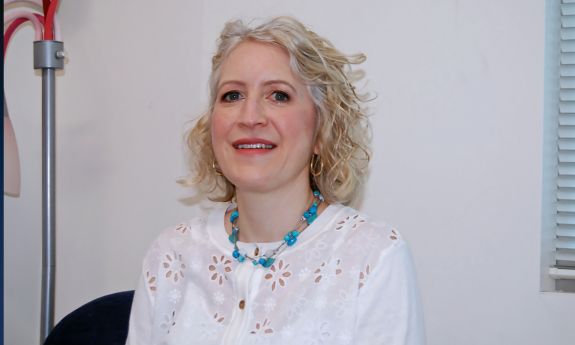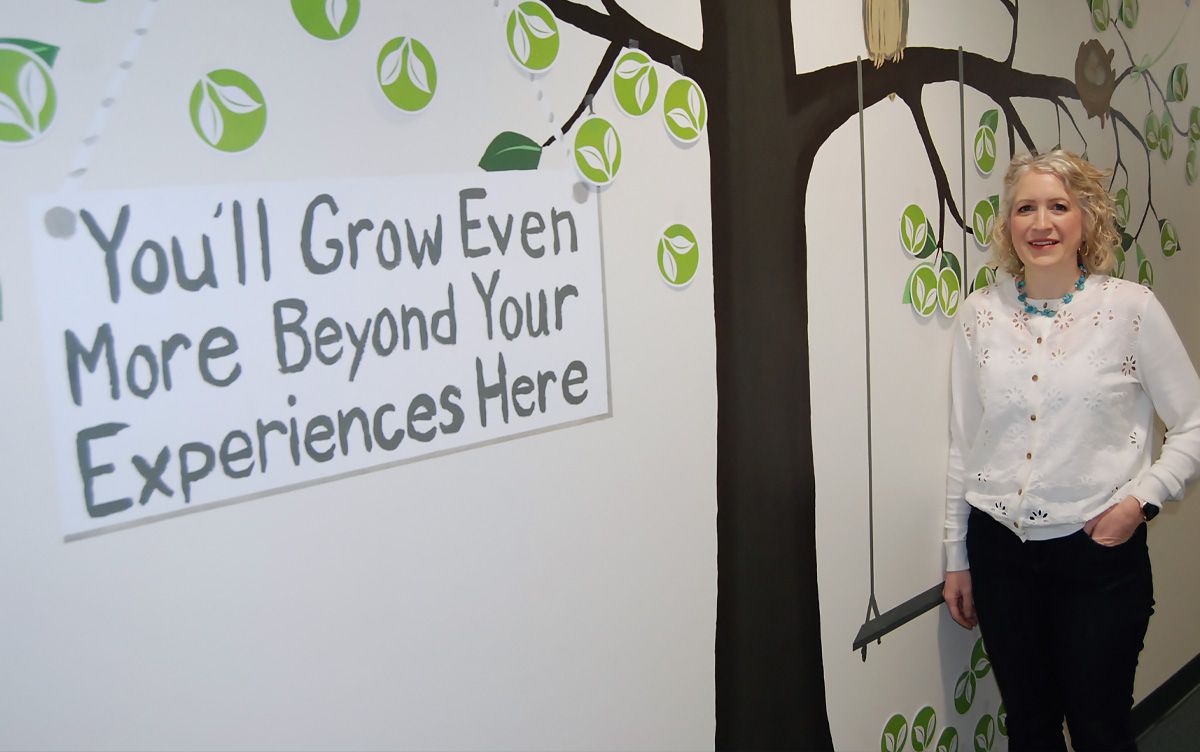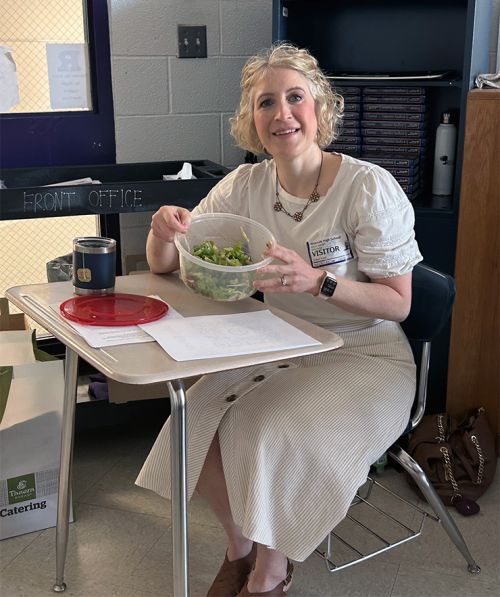Blue Devil of the Week: A Commitment to Addressing Childhood Trauma
Kelly Sullivan supports clinical staff and programs as director of Mental Health Services at the Center for Child & Family Health

According to the Substance Abuse and Mental Health Services Administration, two thirds of children report experiencing at least one traumatic event by age 16, ranging from abuse to violence, disasters or serious illnesses.

Sullivan supports and oversees the function and funding of the direct service programs carried out by 10 clinical staff. And through therapy sessions, they meet directly with children and their parents to help them process their own experiences that can have long-lasting impacts on emotions and day-to-day life.
“We use evidence-based treatments, and we have really highly skilled clinicians,” Sullivan said. “We actually see kids and their parents leaving here stronger than what they were before the trauma happened. We know that we can help kids recover and grow from these experiences.”
What she values about working here: Sullivan appreciates that at Duke, she can see and feel the way she and the Center for Child & Family Health meet the needs of the community, including locally in Durham.
According to the National Child Traumatic Stress Network, childhood trauma can affect how children regulate emotions, interact, and establish relationships. Sullivan feels value in supporting patients in their healing journey.
“Working in mental health spaces is as important as our health in itself,” Sullivan said. “It is life giving and life sustaining.”
Memorable moments when she has been able to help:

Work in childhood and adolescent trauma often involves responding to crises in the community.
Sullivan helped coordinate a cross-agency response after a fatal shooting near Hillside High School in Durham in February.
During a mental health remote learning day on Feb. 17 for students, Sullivan and other staff from the Center for Child & Family Health met with staff at the school to provide trauma-informed support so they best support students.
“What we know is that if we can help teachers and other school personnel be aware that trauma impacts learning of students, then they can approach those students in ways that will promote learning and ensuring the child’s basic needs are met,” she said.
Something people may not know about her:
Then, each morning before work, Sullivan assembles a different salad, a meal she can count on no matter what. Recently, she combined mustard greens, pumpkin seeds, chopped pecans and baby tomatoes along with staples that appear in all her salads — chia seeds, avocado and cheese and garbanzo beans.
For the past 20 years, Sullivan has eaten a salad every day for lunch. She has the routine down to a science. On Saturday mornings, she goes to the Durham Farmers Market to pick out greens, grains and vegetables for the week.
“It’s something that’s really good, and I look forward to it,” Sullivan said. “I don’t have to think about it, but it’s tasty and it’s good for me.”
Meet Kelly’s nominator:
Dr. Kelly Sullivan was nominated by Dr. George Ake, director of training at the Center for Child & Family Health.
“Kelly is a colleague who has always prioritized work to help meet the needs of children and families impacted by trauma. Recently, she coordinated a cross-agency response including Duke, CCFH, Durham Public Schools, and other community-based agencies to respond to a local high school after the loss of one of their students to gun-related violence,” Ake said in his nomination.
Is there a colleague at Duke who has an intriguing job or goes above and beyond to make a difference? Nominate that person for Blue Devil of the Week.